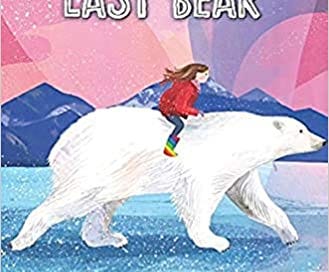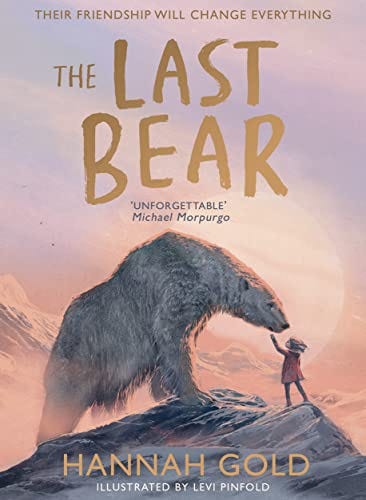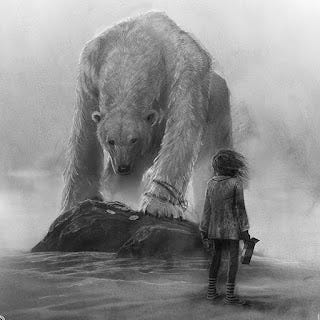Good morning 🌻☀️!
I realized today that it’d been a minute since you’d heard from me, especially since an excellent guest writer took over my last installment. Then we had spring break, and the weeks since—well, they’ve been a struggle.
So, before I get into our book recommendation today, I want to say that I know that the past month has been a lot for everyone—especially those of us with children in our lives. And if you read this newsletter, you most likely have children in your life in some capacity.
When I started the Magic Book House, I decided I’d never get TOO personal. My overall goal for this newsletter is to share my knowledge of and passion for children’s literature and highlight the books our family loves, not to overshare my personal life.
But. I think it’s essential to acknowledge, as most of our country moves on—again—the deep, visceral fear many of us have for our children and our communities.
Lately, I’ve heard the same statement from several well-meaning people:
“Well, we can’t live in fear.”
and gosh, I agree.
But I also think some people, like me, have a harder time applying that theory in practice. Some people, like me, struggle to push down the rising terror as we kiss our children goodbye in the school carpool line. And some people, like me, don’t understand why we can’t just take care of one another. Some people, like me, have a hard time shaking the fear.
Truthfully, I often find the world overwhelming—even during the best times. I used to wish I had a bit thicker skin, that I was one of those people who could really refuse to live in fear.
I don’t wish that anymore, because I realized that wanting to be someone entirely different was an utter waste of time. And when I stopped trying to be someone else, I actually kinda started to like myself, thin skin and all.
So now, when times are dark, I lean even further into the things my soul loves, like running, connecting with a friend, or reading. (surprise!)
A long time ago, while working through a different sort of grief, I stumbled across a poem by Wendell Berry. I saved it in the notes section on my phone—then promptly forgot about it until last week, when I discovered it while looking for something ELSE I’d forgotten about. I wasn’t sure if I would share it here—it’s not children’s poetry, after all— but I felt comforted after reading it again.
If you’re anything like me (and I know you’re out there😉), this is for you.
The Peace of Wild Things~ by Wendell Berry
When despair for the world grows in me
and I wake in the night at the least sound
in fear of what my life and my children’s lives may be,
I go and lie down where the wood drake
rests in his beauty on the water, and the great heron feeds.
I come into the peace of wild things
who do not tax their lives with forethought
of grief. I come into the presence of still water.
And I feel above me the day-blind stars
waiting with their light. For a time
I rest in the grace of the world, and am free.
April is National Poetry Month and Earth Month—and Poetic Earth Month, which I just learned is a thing!
So, since Wendell Berry is a poet, novelist, essayist, farmer, AND environmentalist, I thought it was perfect timing.
Coincidence that I happened to find it on my phone last week? Maybe.
Regardless, this poem reminds me that if the walls are closing in, I can go outside—I have the privilege to go outside. I can watch my children run barefoot in the grass, I can listen to their laughter as they chase our dog in circles, and I can turn my face toward the sun.
The Last Bear, by Hannah Gold (2021)
“There on the horizon, silhouetted against the sun, something moved. It was in the blink of an eye. So rapid she almost missed it. Something big and loping and most unexpected. It couldn’t be? She blinked again. Whatever it was had gone. But April could have sworn she’d just seen a polar bear.”
When 11-year-old April learns that she and her climate scientist father are to spend six months living on an uninhabited Arctic island, she’s more excited than other girls her age might be. April has lived alone with her neglectful father since her mother’s death years earlier, and she’s much more comfortable with nature and animals than with people.
April soon experiences two disappointments: first, despite the name, no polar bears are left on Bear Island. Second, her father’s work measuring weather patterns is all-consuming, leaving him no time for the snowy adventures she’d pictured.
However, April isn’t alone for long before discovering a hungry and lonely polar bear with an injured paw. She earns the bear’s trust by tending to his paw and bringing him jars of peanut butter and piles of oat biscuits.
April learns to communicate with Bear, and the two form an incredible friendship. Eventually, April understands why Bear is alone on the island and must summon the courage to save him.
This book celebrates the powerful bond between humans and animals, while simultaneously exploring themes of grief and loneliness. The Last Bear is magical realism at its best— emotional and heartbreaking at times, but with a hopeful and inspiring conclusion.
I liked that the environmental message is clear without being didactic or overpowering, and indeed—by the end of the novel, readers feel encouraged, not weighed down.
The Last Bear was Hannah Gold’s debut novel, and she described it as a chance to inspire children with the message that “no one is too small or insignificant to make a difference about the things they truly care about.”
Recommended for ages 8-12
I couldn’t find it, but if you can, I highly recommend the edition illustrated by Levi Pinfold. Check out more of Pinfold’s artwork from the book.
Wishing you hours and hours of reading magic,
✨Katie ✨







Lovely post, Katie -- and I've long turned to that poem (and Wendell Berry in general -- in fact I was just comfort-reading his work last night!) when I need some solace.
Keep on keepin' on, friend.
Dear friend, it will come as no surprise that what you wrote resonated deeply with me. I love the Wendell Berry poem - thank you for sharing.
The Last Bear was wonderful! I read Hannah Gold's other book, The Lost Whale, this week and enjoyed it, too.
As always, thanks for writing.